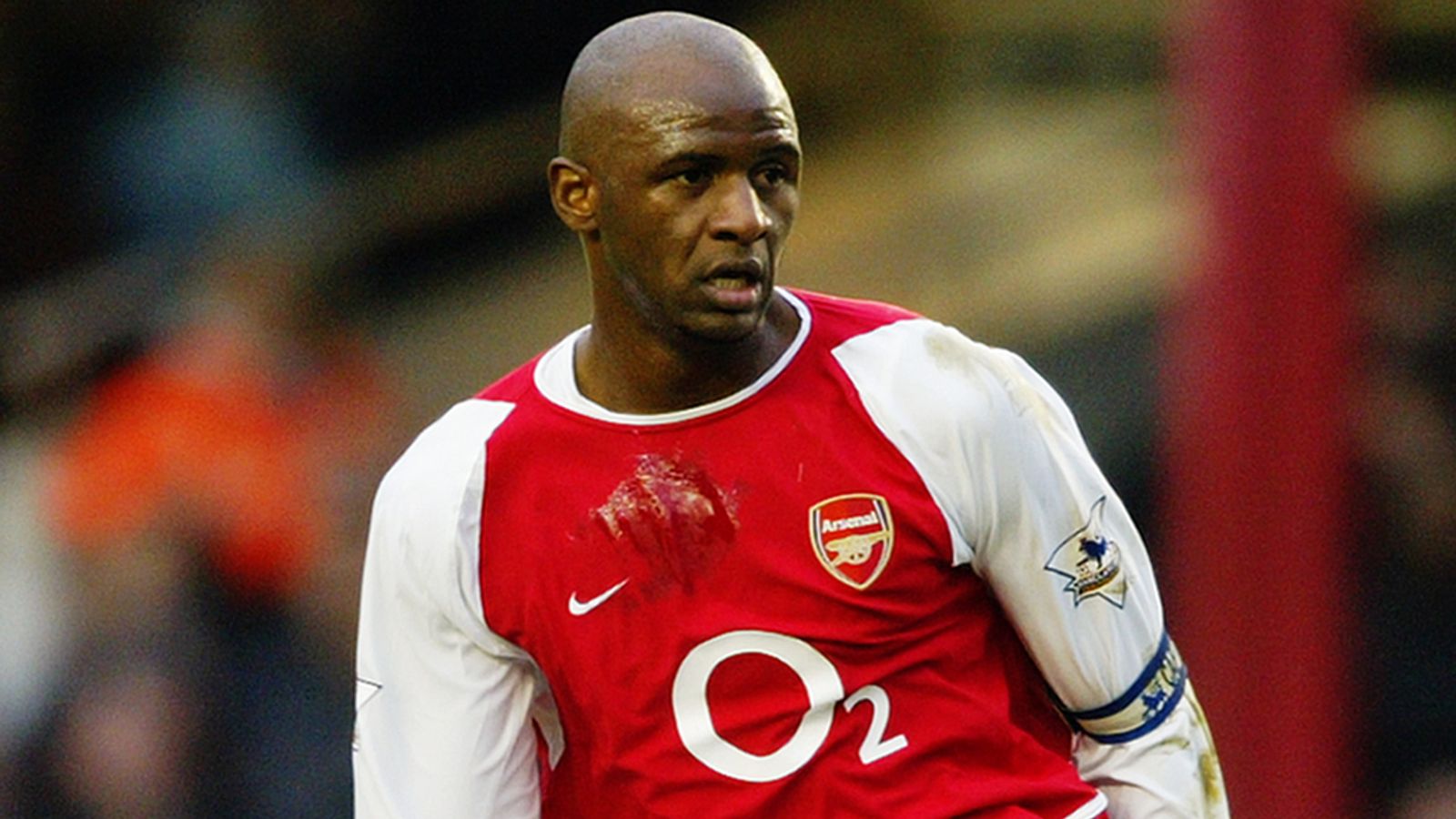Early Life and Career
Patrick Vieira was born on June 13, 1976, in Dakar, Senegal. His family moved to France when he was eight years old, and he began playing football with local club AS Cannes. Vieira quickly rose through the ranks at Cannes, and made his professional debut for the club in 1993. He spent two seasons with Cannes before moving to AC Milan in 1995.
Vieira’s time at AC Milan was a success, and he helped the club win the Serie A title in 1996 and 1999. He also played a key role in Milan’s victory in the UEFA Champions League in 1994. Vieira left Milan in 1999 to join Arsenal, where he would spend the next nine seasons of his career.
Youth Career at Cannes
Vieira began his youth career at AS Cannes, a French club based in the city of Cannes. He joined the club’s youth academy at the age of 11, and quickly rose through the ranks. Vieira was a talented and versatile player, and he could play in a variety of positions. He was a natural leader, and he quickly became one of the most promising young players in France.
Move to AC Milan
In 1995, Vieira moved to AC Milan, one of the most prestigious clubs in the world. He was signed by manager Fabio Capello, who saw Vieira as the ideal player to replace Marcel Desailly, who had left the club to join Chelsea. Vieira quickly became a key player for Milan, and he helped the club win the Serie A title in 1996 and 1999. He also played a key role in Milan’s victory in the UEFA Champions League in 1994.
Arsenal Years: Patrick Vieira

Patrick Vieira’s transfer to Arsenal in 1996 marked a turning point for the club. His immediate impact was evident as he brought a level of physicality and determination to the midfield that had been lacking. Vieira’s ability to dominate possession, win tackles, and distribute the ball effectively transformed Arsenal’s style of play.
Premier League Dominance
Vieira’s leadership and presence on the pitch played a pivotal role in Arsenal’s success during the late 1990s and early 2000s. Under manager Arsène Wenger, the team won three Premier League titles in 1998, 2002, and 2004. Vieira’s combative nature and ability to inspire his teammates made him a key figure in Arsenal’s dominance of English football during this period.
FA Cup Triumphs
Vieira also played a significant role in Arsenal’s FA Cup triumphs. He captained the team to victory in the 1998, 2002, and 2003 finals, solidifying his status as a club legend. Vieira’s leadership and determination were instrumental in Arsenal’s success in this prestigious competition.
International Career

Patrick Vieira’s international career with the French national team was one of remarkable success and achievement. He played a pivotal role in France’s triumph at the 1998 FIFA World Cup and the 2000 UEFA European Championship.
Vieira made his international debut in 1997 and quickly established himself as a key member of the French team. He was renowned for his commanding presence in the midfield, his exceptional ball-winning abilities, and his ability to dictate the tempo of the game.
1998 FIFA World Cup, Patrick vieira
Vieira played a crucial role in France’s victory at the 1998 FIFA World Cup. He formed a formidable midfield partnership with Didier Deschamps, providing a solid defensive base and initiating attacking moves. Vieira’s performances were particularly impressive in the semi-final against Croatia, where he scored a stunning goal to give France the lead.
2000 UEFA European Championship
Vieira continued to be a key figure in the French team that won the 2000 UEFA European Championship. He captained the side in the absence of Laurent Blanc and led by example with his commanding performances in the midfield. Vieira’s influence was evident in the final against Italy, where he controlled the tempo of the game and played a pivotal role in France’s victory.
Vieira’s international career spanned over a decade, during which time he made 107 appearances for France and scored 6 goals. He retired from international football in 2009 after helping France reach the final of the 2006 FIFA World Cup.